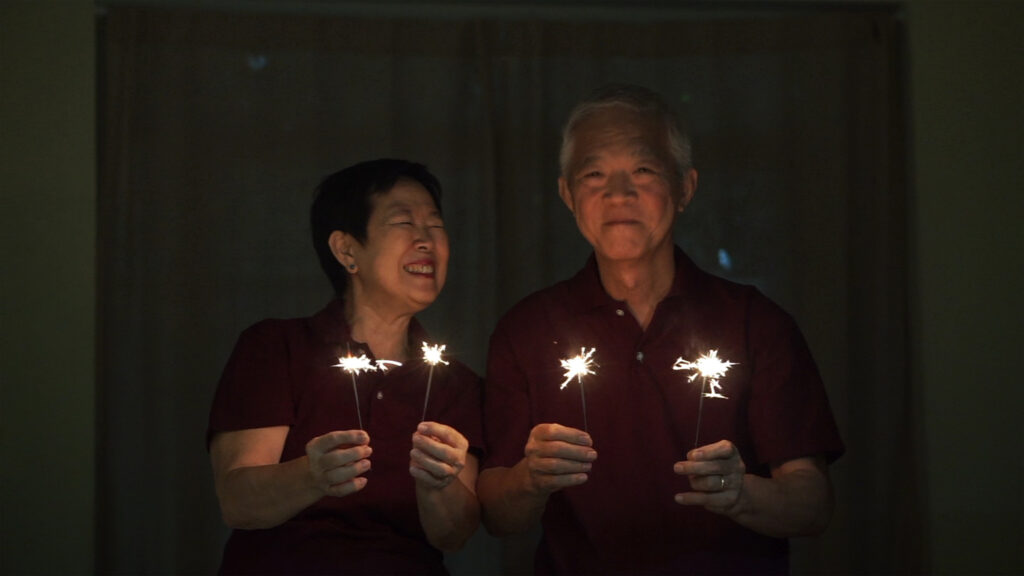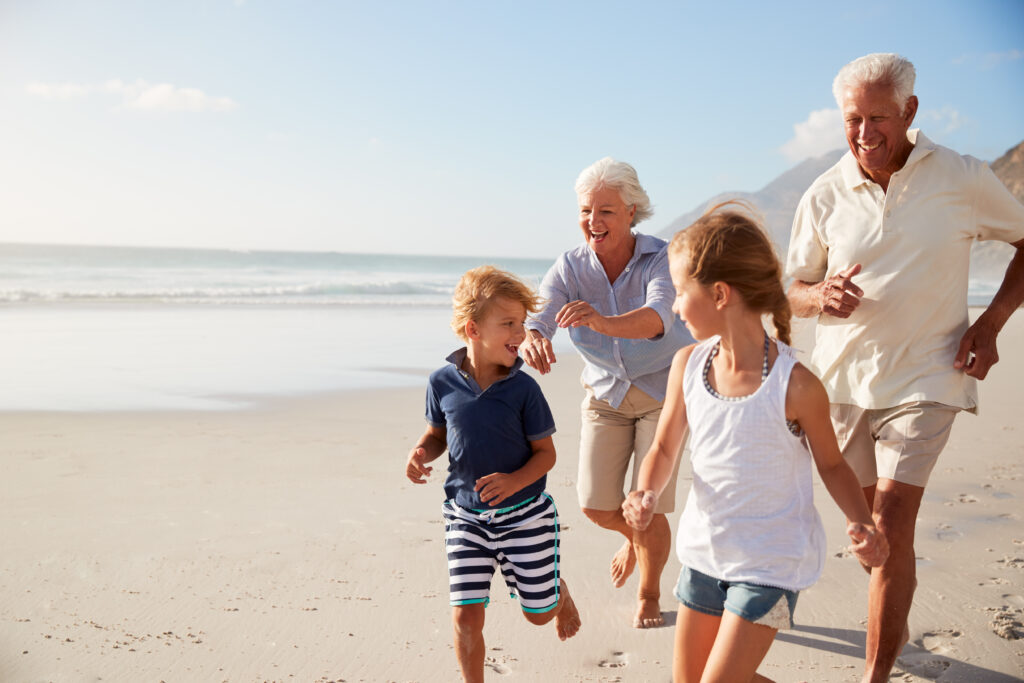While Christmas in July may sound like a marketing ploy, the holiday has always been observed in the southern hemisphere during July. The U.S. version was first celebrated in 1933, when a camp in the North Carolina mountains decided to dedicate two days that summer to the holiday. It had all the hallmarks of the December holiday–a Christmas tree, exchange of gifts, sleigh bells, and a roly-poly Santa Claus. In the 1950s, shops began to see the holiday as a sales opportunity, and ever since it has become an excuse for social gatherings with family and friends.

The pandemic has led to increased celebration of Christmas in July or similar gatherings to reconnect and make up for lost time. All my family and friends feel some trepidation about socializing again after over a year of isolation. How do you interact carefully and thoughtfully? Here are ten suggestions that apply to yourself and other family members— especially the elderly.
1. Start small, with just one friend, family member, or a few people in your inner circle.
When my family got together to celebrate my father’s 100th birthday two months ago, we deliberately limited the number. Only the daughters came— no husbands. We felt that more people would be overwhelming for our father after barely seeing anyone for over a year.
2. Assume it will feel weird.
You can expect to feel some anxiety, even if you’ve been waiting desperately for this moment. The good news is that research shows most people overcome the anxiety quickly and soon get used not only to meeting in person but to gestures like high-fiving, shaking hands, hugging, kissing, and other forms of physical contact.
3. During overnight visits, build in quiet time.
This is especially important for the elderly, who need breaks from stimulating conversation and social chatter. Many seniors doze off throughout the day to compensate for light sleep at night. Christmas in July is no different. Be sure your elderly family members get a nap if they want one.
4. Practice exposure therapy.
This kind of therapy refers to gradual exposure to uncomfortable situations in order to build tolerance for them. For example, if working with a person afraid of spiders, a therapist might first ask the person to picture a spider at the far end of the room, then gradually closer and closer; and finally placing the spider in the person’s hand.
If you feel nervous about socializing in person, you can practice exposure therapy yourself by carefully going over every detail of an interaction in your mind— from the minute you meet someone, to what you say in the first moments, to hugging or shaking hands— all the way to saying goodbye. By the end of the therapy, you’re much more likely to feel ready to meet with a friend. Just be sure to give yourself time to relax before the next social event. If you’re a caregiver, you can also role-play this sequence with your senior.
4. Remind elderly relatives of upcoming social events.
After any visit by a family member my father always asks, “Now who is coming next, and when?” Even though my sisters and I put all upcoming visits on his calendar, he doesn’t always remember and likes repeated verbal assurances.

5. Choose an environment you feel comfortable with.
For example, you could meet in a park for a picnic or at a home with a garden, which would allow you to mix both inside and outside, where you may have already been socializing safely.
6. Keep the food simple.
Even if you really are hosting a Christmas in July party, this is not the time for an elaborate dinner that you’ll stress over. Plan a potluck or prepare something familiar that doesn’t take too much time— unless you’re the kind of host who doesn’t find it stressful to spend a long afternoon cooking!
7. Don’t pressure yourself to socialize before you’re ready.
Consider your health history, age, the feelings of others you live with, and your emotional state. Start interacting only with people you feel very comfortable with, rather than with casual acquaintances or others you’re not sure about.

8. Practice basic self-care.
A common reaction to stress is to neglect good health habits. The better you take care of yourself, the more easily you’ll relax. Eat well, avoid junk food, don’t drink too much alcohol, exercise everyday, and get enough sleep.
9. Be careful around people who are sneezing or coughing.
During the COVID-19 pandemic, the CDC reported that flu cases in the U.S. decreased 85% because people were wearing masks, washing their hands, and maintaining social distance. As soon as you stop taking these precautions, you’ll be more prone to other infections.
10. Be patient with yourself.
Take as much time as you need, the world isn’t going anywhere. Remember you’re not alone— everyone feels a little awkward or uncomfortable.

These cautions aside, the fact that we can come together with friends and loved ones at all —after so long and frightening of a time— is cause for joy. According to biology, neuroscience, and psychology; humans function better when we’re around other people. Not only are we healthier physically, mentally, and emotionally; but studies by Robert R. Provine and Kenneth R. Fischer, Professors of Psychology at the University of Maryland, have shown that we are 30 times more likely to laugh when we’re around others than when we’re alone.
As difficult as it has been, the past year has been an unforgettable and universal experience that has the potential to not only help us deepen our bonds with those we love, but to feel more in common with adversaries and strangers. So buy some flowers, turn on the music, and bring out the platters of food— it’s time to celebrate!

